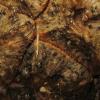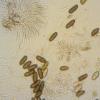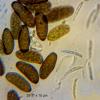
13-01-2026 09:10
 Danny Newman
Danny Newman
Dasyscyphella chrysotexta on indet. decorticate ha

13-01-2026 08:49
 Danny Newman
Danny Newman
Coccomyces sp. on fallen Rhododendron leavesPretty

13-01-2026 08:43
 Danny Newman
Danny Newman
Tricladium varicosporioides on indet. decorticate

12-01-2026 22:02
Ethan CrensonHello all, I am hoping someone will have some ins

13-01-2026 07:57
 Danny Newman
Danny Newman
cf. Bombardia on indet. decorticate woodAppalachia

13-01-2026 07:51
 Danny Newman
Danny Newman
Atrocalyx sp. on indet. herbaceous stemAppalachian

13-01-2026 07:28
 Danny Newman
Danny Newman
Chlorociboria glauca on indet. decorticate logThe

13-01-2026 07:14
 Danny Newman
Danny Newman
Neodasyscypha cerina on indet decorticate logThe S

11-01-2026 20:35
Hello.A very tiny pyrenomycete sprouting sparsely

12-01-2026 05:24
 Danny Newman
Danny Newman
Cyathicula coronata on Urtica dioicaCataloochee Di
 Hello all,
Hello all, I noticed a gelatinous substance on cone scales of Pinus sylvestris, in many (but not all) cases associated with black perithecia.
Spores / conidia from the black perithecia were light brown, simple but some faintly 1-septate, 29-37 x 15 µm - smaller than those suggested by Christian Lechat as Sphaeropsis sapinea in different post, but within the size range for that species?
Conidia from the gelatinous substance were hyaline, c. 24-29 x 3-4 µm. Are these from a different fungus?
With regards,
Jenny

I would still be happy that that is Sphaeropsis sapinea; I have seen it with two and even on occasion three septa. Regarding your second fungus, although your conidial sizes are at the very top end I would wonder about these being beta-condia of Phomopsis conorum now treated as one of the numerous synonyms of the plurivorous Diaporthe eres; I see this is currently in Species Fungorum under an anamorph name - "One Fungus, One Name" at work here? http://www.speciesfungorum.org/Names/SynSpecies.asp?RecordID=123547
best wishes
Chris

With regards
Jenny

you won't necessarily be able to find the teleomorph. It is quite common to find Phomopsis spp. on dead twigs, stems, leaves etc., without the accompanying Diaporthe.
After a while recognising Phomopsis alpha*- and ß-conidia is generally quite straightforward - do you have access to the two volumes of British Stem & Leaf Fungi by W.B. Grove?
best wishes
Chris
*system is not letting me enter the Greek letter


This may work better the first did not take you to the book or download page
http://bibdigital.rjb.csic.es/ing/FichaLibro.php?Libro=5228

With regards,
Jenny


